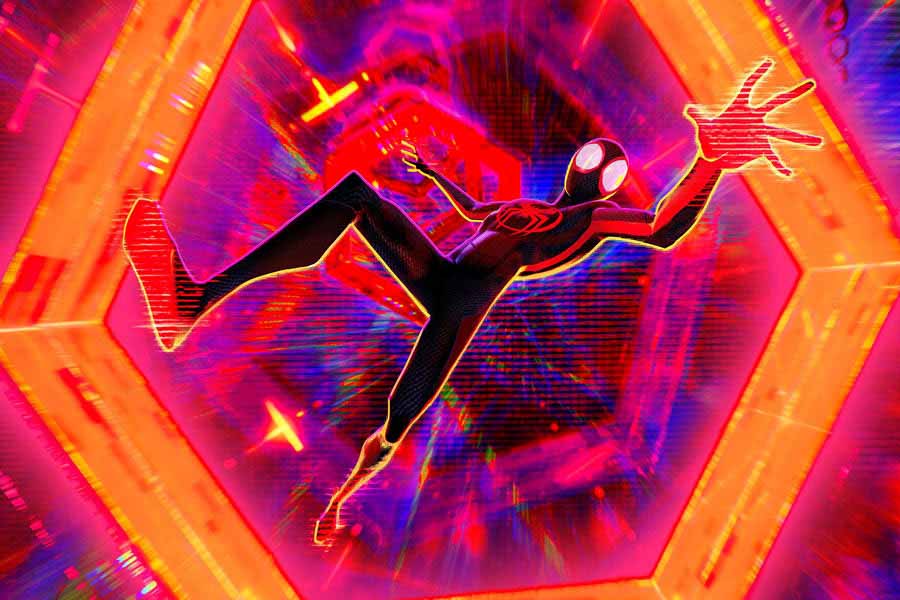Miles Morales (Shameik Moore) is back and so is his crazy, colourful, frenetic, bold and wonderful world, only this time it is crazier, more colourful and more frenetic and it has definitely gone bigger and bolder than the first film, Spider-Man: Into the Spider-Verse.
Scripted by Phil Lord, Christopher Miller and David Callaham, and directed by Joaquim Dos Santos, Kemp Powers and Justin K. Thompson, Spider-Man: Across the Spider-Verse is still Miles Morales’s story but it is not just his story. It is Gwen Stacy’s (Hailee Steinfield) story too. It is the story of a will-they-won’t-they romance and of parental anxiety. It is the story of the ethos of Spider-Man and what makes the web-crawler a superhero. And it is a well-written visual treat.
Across the Spider-Verse begins in Gwen’s world of watercolour hues that change with the changing emotions and your mind is blown several times in that opening sequence alone, giving you a taste of what is to come.
In Spider-Man: Into the Spider-Verse, multiple Spider-beings entered Miles’s universe. This time Miles is travelling to the universes of some other Spider-beings as he tries to fight Spot (Jason Schwartzman), a wormhole-producing baddie who starts off as what seems like a comical ‘villain of the week’ and transforms into a multiverse-threatening supervillain.
Along with Miles, we are pulled into the worlds of an elite Spider-force who are dedicated to controlling anomalies that threaten to destroy universes. There is the broody, menacing Miguel O’Hara (Oscar Isaac) who leads the team that includes a badass motorcycle-riding, super-pregnant Spider-Woman called Jessica Drews (Issa Rae), the scene-stealing Spider-Punk aka Hobie (Daniel Kaluuya), charismatic Pavitr Prabhakar (Karan Soni) and many more.
You would expect chaos with so many storylines crisscrossing, and chaotic it is but it is a defined chaos — a credit to the writers — where you never lose the thread, no matter how many colourful universes you are hurtling through.
“Spider-Man is supposed to be funny,” says one of the Spider-beings and in true Spider-Man style, Spider-Man: Across the Spider-Verse never loses its funny bone even when it delves into much darker themes. Some of those moments, like that fight between Spot and Miles’s Spider-Man including bubble baths and an errant goose, will leave you in stitches. But it never undermines the emotional heart of the film, whether it is the ups and downs in Miles and Gwen’s friendship, Gwen’s relationship with her father or Miles’s parents worrying about how the wider world will treat their boy.
But what makes Spider-Man: Across the Spider-Verse a superlative film is its animation. The visuals are spectacular, they change with every world. While Gwen’s world is awash in watercolours, Prabhakar’s Mumbattan is marked by old-school Indian comic book style art. There are black-and-white sketch art sequences blended with mixed media collages that borrow from on-screen and comic book sequences.
Given how high the bar has been raised and the third film in the trilogy, Beyond the Spider-Verse, already being teased, we can surely hope to call this the best Spider-Man trilogy there was.










